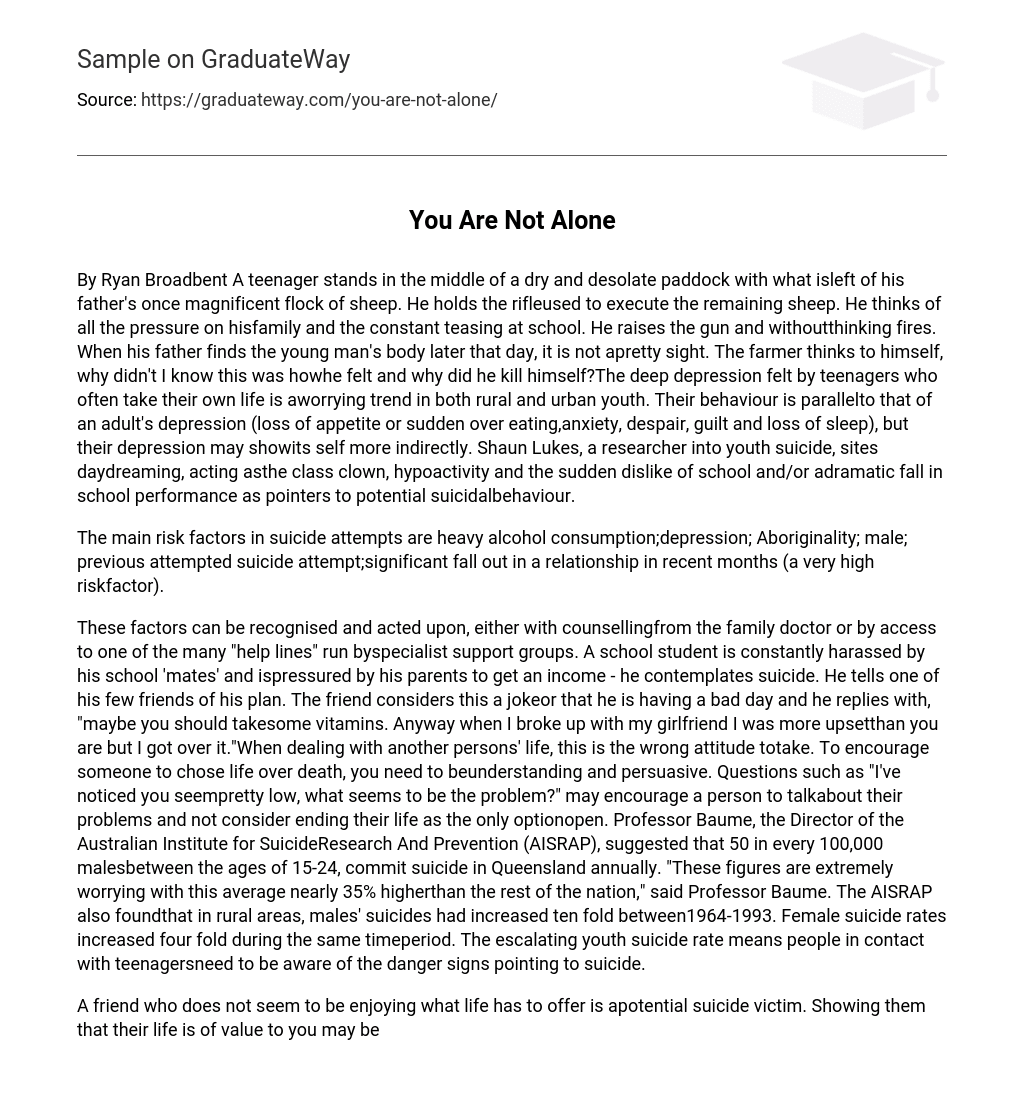By Ryan Broadbent A teenager stands in the middle of a dry and desolate paddock with what isleft of his father’s once magnificent flock of sheep. He holds the rifleused to execute the remaining sheep. He thinks of all the pressure on hisfamily and the constant teasing at school. He raises the gun and withoutthinking fires. When his father finds the young man’s body later that day, it is not apretty sight. The farmer thinks to himself, why didn’t I know this was howhe felt and why did he kill himself?The deep depression felt by teenagers who often take their own life is aworrying trend in both rural and urban youth. Their behaviour is parallelto that of an adult’s depression (loss of appetite or sudden over eating,anxiety, despair, guilt and loss of sleep), but their depression may showits self more indirectly. Shaun Lukes, a researcher into youth suicide, sites daydreaming, acting asthe class clown, hypoactivity and the sudden dislike of school and/or adramatic fall in school performance as pointers to potential suicidalbehaviour.
The main risk factors in suicide attempts are heavy alcohol consumption;depression; Aboriginality; male; previous attempted suicide attempt;significant fall out in a relationship in recent months (a very high riskfactor).
These factors can be recognised and acted upon, either with counsellingfrom the family doctor or by access to one of the many “help lines” run byspecialist support groups. A school student is constantly harassed by his school ‘mates’ and ispressured by his parents to get an income – he contemplates suicide. He tells one of his few friends of his plan. The friend considers this a jokeor that he is having a bad day and he replies with, “maybe you should takesome vitamins. Anyway when I broke up with my girlfriend I was more upsetthan you are but I got over it.”When dealing with another persons’ life, this is the wrong attitude totake. To encourage someone to chose life over death, you need to beunderstanding and persuasive. Questions such as “I’ve noticed you seempretty low, what seems to be the problem?” may encourage a person to talkabout their problems and not consider ending their life as the only optionopen. Professor Baume, the Director of the Australian Institute for SuicideResearch And Prevention (AISRAP), suggested that 50 in every 100,000 malesbetween the ages of 15-24, commit suicide in Queensland annually. “These figures are extremely worrying with this average nearly 35% higherthan the rest of the nation,” said Professor Baume. The AISRAP also foundthat in rural areas, males’ suicides had increased ten fold between1964-1993. Female suicide rates increased four fold during the same timeperiod. The escalating youth suicide rate means people in contact with teenagersneed to be aware of the danger signs pointing to suicide.
A friend who does not seem to be enjoying what life has to offer is apotential suicide victim. Showing them that their life is of value to you may be all they need toprevent them becoming a statistic in the saga of escalating youth suicide.
Ryan B





